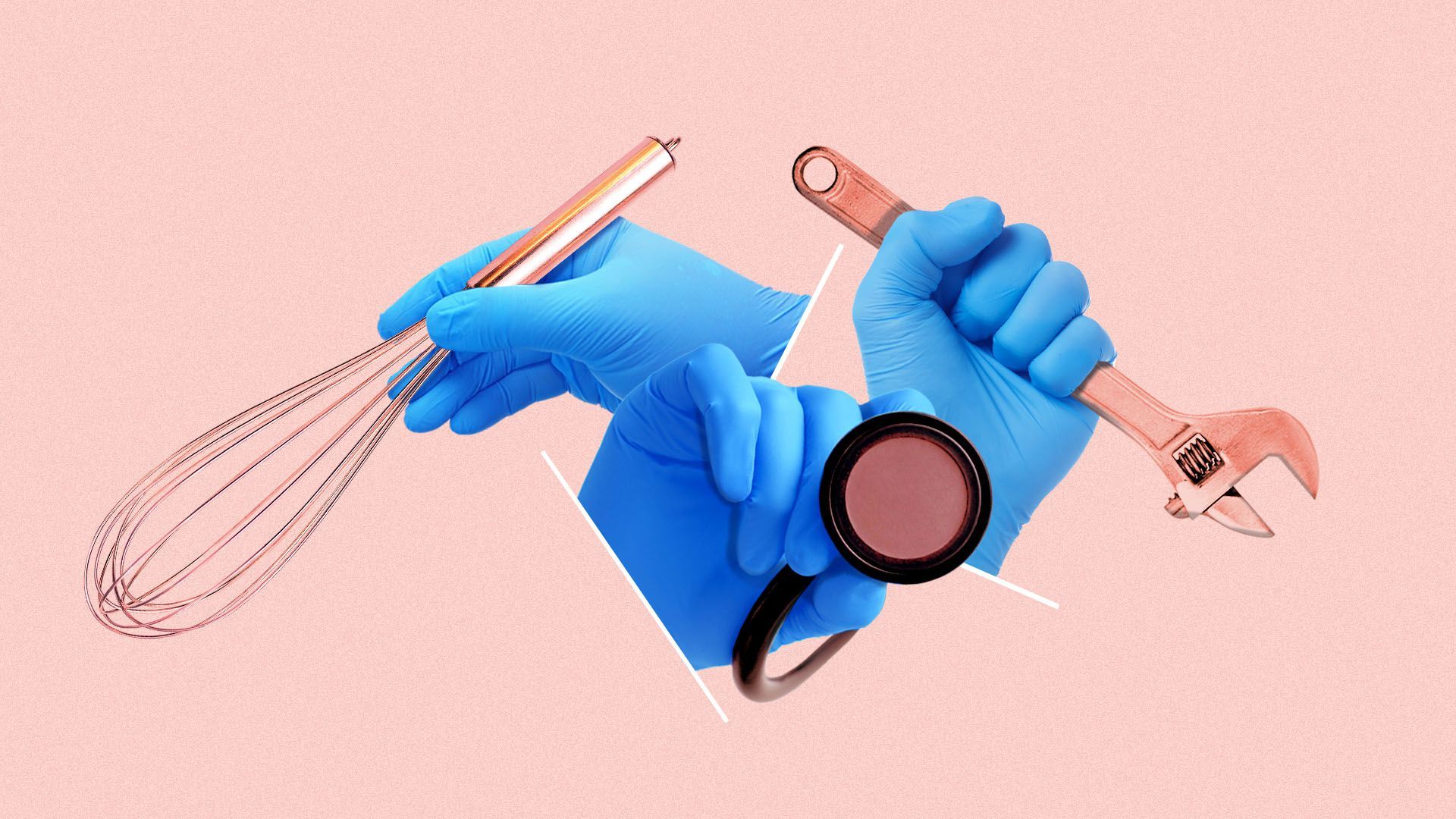Community colleges struggle with hands-on classes
Add Axios as your preferred source to
see more of our stories on Google.

Illustration: Sarah Grillo/Axios
Programs at community colleges and technical schools that require hands-on learning — like welding or auto repair — have a unique challenge as they try to stay open while keeping students safe.
Why it matters: One-third of higher education students enrolled last spring were from a community college. And their student bodies are often higher-risk than traditional colleges', with more students who work, come from communities hit hard by the virus, or are older.
Where it stands: Two-year programs are attempting to provide workarounds for their curriculum this fall in order to stay open while also preventing the spread of COVID-19.
- Schools couldn't guarantee the safety of students who needed to be on-site to complete their certifications last semester, delaying their graduation. Colleges are trying to make sure that doesn't happen again.
- Waubonsee Community College in Illinois will have hybrid courses for its welding, HVAC installation and automotive programs, staggering when students need to come to their class labs.
- Manchester Community College added augmented reality and virtual reality to its computer science program for remote learning. Its nursing and technical programs have class cohorts, temperature checks and designated restrooms.
- Culinary Institute of Charleston at Trident Technical College spent the summer converting its program online for students who don't feel comfortable attending in-person.
Yes, but: Despite the preparation, there are no guarantees classes won't be shut down if cases emerge.
The bottom line: It can be difficult for some technical programs to be taught completely online. And if schools can't guarantee student safety, their certifications could suffer.
